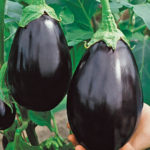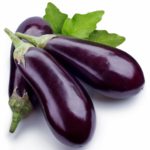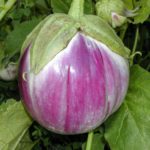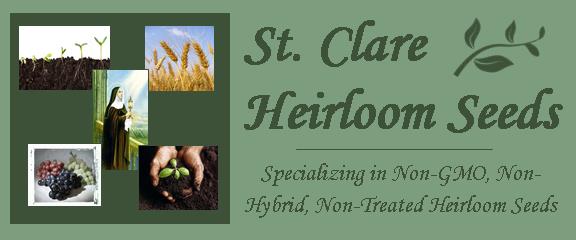Eggplant Seeds
Scroll down to see seeds for sale!
Even though technically a berry, like watermelon, eggplant comes in various shapes and colors, and is mostly used as a vegetable. Originally a wild plant from India around 1,500 years ago, eggplant was called “aubergine”, the ancient Indian Sanskrit word for purple. Brought to the US in the early 1800s, the purple eggplant is best known today, but some of the early varieties were white and yellow, and resembled hen’s eggs, hence the name!
A variety of nightshade, eggplant is rich in fiber, vitamins B-1 and B-6, C, K, copper, manganese, niacin, potassium, and folate. The high level of antioxidants and beneficial chemicals in eggplant boosts the immune system, improves blood flow to the brain, protects cardiovascular health, lowers blood pressure and cholesterol and reduces risk of cancer. The leaves are not very tasty, but grinding the leaves for juice is sometimes used to treat throat and stomach issues, respiration problems, rheumatism and eczema.
Usually served as eggplant parmesan, the texture of eggplant makes it a wonderful substitute for meat, such as yummy ‘veggie burgers’, or layered with zucchini and squash for vegetable lasagna. Eggplant can also be steamed, roasted with pine nuts, baked or fried, and is delicious served as an Italian dish baked with breadcrumbs, spaghetti sauce and parmesan cheese. Tossing with oil and thoroughly cooking can soften eggplant, which can be chewy and bitter otherwise due to the nicotine content in eggplant seeds.
Eggplant seeds prefer warmer, humid weather and should be planted in warm regions where the summers are long and there is plenty of sunlight. Eggplant seeds are generally started indoors, as they germinate above 75 degrees Fahrenheit, although if you live in the south, you may place your St. Clare Heirloom eggplant seeds directly in the ground.
Showing all 4 results
-

Eggplant – Black Beauty
$2.59 View ProductAdd to cart(Solanum melongena) 80 days. Black Beauty Open Pollinated Eggplant produces a very high yield of round oval fruit that is glossy and deep purple in color. Black Beauty carries is fruit well off the ground so fruit stays much cleaner.
50 Seeds per pack
-

Eggplant – Florida Market
$2.59 View ProductAdd to cart(Solanum melongena) 78 – 90 days. Florida Market Open Pollinated Eggplants grow from 30″ to 38″ tall and produces fruit that is glossy, dark purple, and around 9″ long. Florida Market Eggplant is almost resistance to sunscald and is very prolific.
50 Seeds per pack
-

Eggplant – Long Purple
$2.59 View ProductAdd to cart(Solanum melongena) 80 days. Long Purple Open Pollinated Eggplant grows from 20″ to 38″ tall and does well in the north. Long Purple Eggplant fruit is 8″ to 10″ long and has a firm but mild flesh. Yield 4 or more fruits per plant.
50 Seeds per pack
-

Eggplant – Rosa Bianca
$2.59 View ProductAdd to cart(Solanum melongena) 70 days. Rosa Bianca Heirloom Open Pollinated Eggplant is an Italian heirloom with stunning light pink lavender fruits with an occasional creamy white shade. Flesh is meaty, mild flavored, with no bitterness.
50 Seeds per pack
Showing all 4 results

